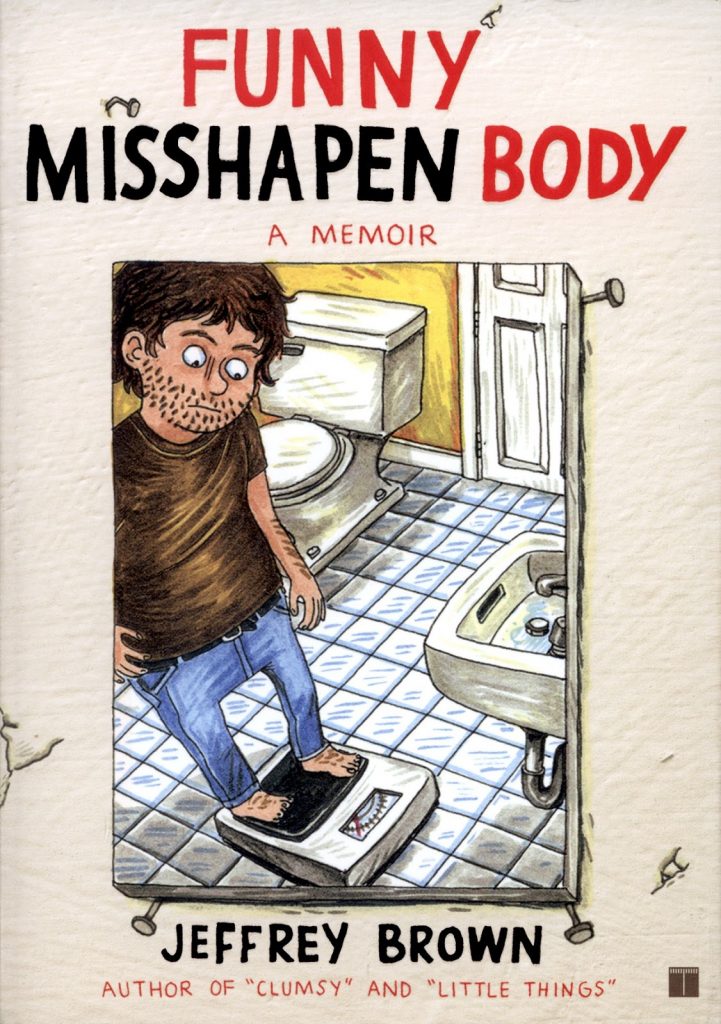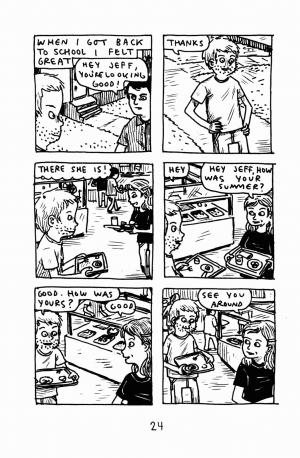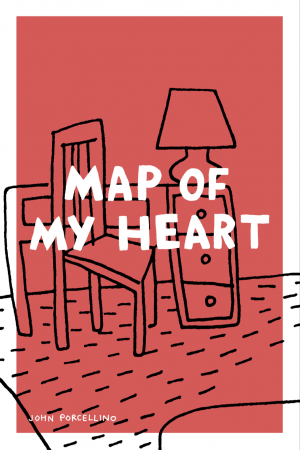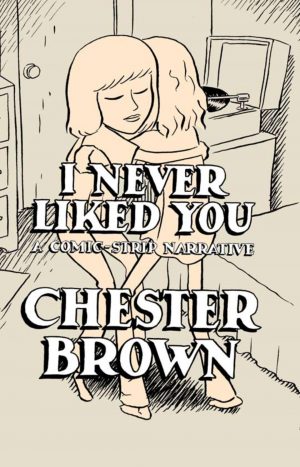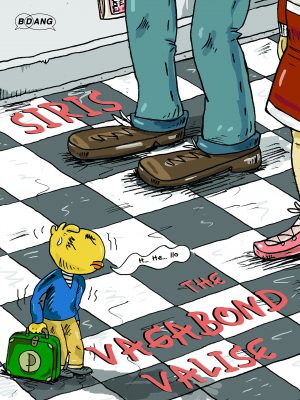Review by Frank Plowright
Jeffrey Brown’s introduction to Funny Misshapen Body notes his childhood ambition to draw comics, and how he’s achieved that aim, if not in the manner he assumed back then. For a long time his primary method of expression was personal and confessional, and Funny Misshapen Body draws a line under that period via individual chapters mulling over different aspects of his younger life.
It’s a return to autobiographical recollection after discovering a talent for funny observational cartoons, and initially at least a return to ground covered in excruciating detail during the course of Clumsy, Unlikely and AEIOU, collectively referred to as ‘The Girlfriend Trilogy’. The opening section runs through a succession of crushes, Brown impotent when it comes to connecting with girls he develops feelings for.
Thankfully, the subject matter expands over a selection of chapters on different themes that connect via featuring Brown himself. Collectively they reveal an insecurity rendering every criticism hurtful without necessarily considering the validity of the source, exemplified by a recollection of his college art show critique, every comment a stab to the heart. It’s the sort of strip that builds sympathy for Brown, at the time unable to see what a bunch of condescending or hollow idiots his assessors are. Further sympathy is engendered by his being diagnosed with Crohn’s Disease, a lifelong digestive condition he’s told is currently incurable without invasive surgery, requiring continual medication. Some results in embarrassing side effects for adults, never mind a teenager. The treatment brings forth a horrific set of recollections that should shame the doctors concerned. It also finally moves Funny Misshapen Body into original territory. The opening seventy pages are too full of moments many, many others have experienced.
Because Brown works directly in ink, there’s no option for correction, which has an authenticity sitting well alongside his confessional strips. At first glance the art seems hastily scratched out in a primitive style, but there’s finesse to the composition, and the panels carry the necessary emotional weight. Brown discusses the evolution of his style and how he concluded honest expression was more important than perfection, provided along with suitably ignorant comments from art school teachers.
Brown’s previous non-girl specific autobiographical recollections Little Things separated chapters via anecdote rather than presenting them chronologically, and sorting his youth and college years according to themes in that fashion makes Funny Misshapen Body a tighter read. Ideally every section would inform, but adhering to the object of a complete overview of Brown’s youth means some themes don’t stand out. However, Brown is a skilled observer with a good memory, and the better chapters hook and engage throughout. These include the unpromising subject of work decorating wooden shoes and bowls. Really.
Toward the end Brown grinds through art school where he gradually settles on comics as his chosen form, explaining his methods and ideals. Combined with some earlier chapters it’s a testament to self-belief (even if occasionally shaky), perseverance and talent winning out when encouragement from the right people was forthcoming. It’s a more expanded version of ‘Little Things’ from Brown’s previous collection.
An interesting omission is Brown’s thoughts on being raised by a religious family and how that impacted on his life. It’s mentioned in passing a couple of times, and would seem to feed into the general brief, but isn’t ever discussed. Otherwise readers know what they’re getting from Brown, and Funny Misshapen Body provides an extended dose without much of the meandering present in previous collections.
